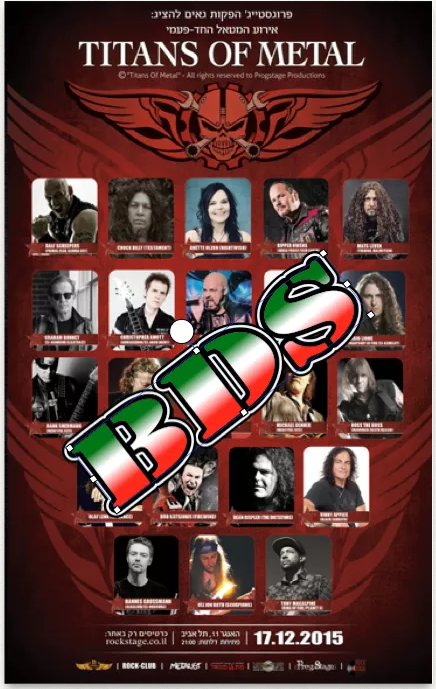For many musicians, “Good evening, Tel Aviv!” is a brave political statement.
Just to perform in Israel, singers and renowned musicians from all around the world are forced by opinionated fans to take a political position on the highly nuanced situation in the Middle East. In very few cities across the globe is an artist’s performance a bold political statement, but unfortunately, in Israeli cities, it is. As a result, dedicated Israeli fans are unjustly forced to pay the cost when artists are pressured not to perform in Israel.
Famous singers and bands like Madonna, Kanye West, Justin Timberlake, The Red Hot Chili Peppers, Depeche Mode, The Rolling Stones, and many more have expressed their support for Israel by choosing to play in Israel’s Park HaYarkon or the many other arenas and concert halls that can be found in the country. And yet, every time big names in popular music choose to perform in Israel, controversy ensues, and other artists are deterred from performing there in the future. So, when these artists do come, Israeli fans pour in by the thousands to experience some of the music firsthand, an experience that is becoming increasingly rare and inaccessible for the ordinary Israeli.
Recently, Rihanna showed major love for Israel in sticking to dates in Israel as part of her Last Girl on Earth and Diamonds world tours. There was some controversy surrounding her performance at Park HaYarkon. During her song, “Pour It Up,” Haaretz’s Amy Klein misreported that she replaced the words “dollar signs” with “Palestine,” so as to make it seem as if she said “All I see is Palestine.” This was proven false by video footage, and Rihanna’s politically complicated yet supportive relationship with Israel remains strong.
Evidently and much to the dismay of Israeli music lovers, the BDS movement seems to have snuck into the Israeli music scene, calling on artists who schedule tour dates in Israel to cancel in protest of the occupation of the West Bank and Gaza Strip and in solidarity with the Palestinians. Most recently, Matisyahu and the Titans of Metal festival set to happen in Israel have been the victims of the BDS movement’s boycott of Israeli music and the music scene.
This summer, Matisyahu’s performance at the Rototom Sunsplash festival in Spain was cancelled following the artist’s refusal to make a statement regarding Palestinian statehood. While this festival dedicates itself to peace, equality, human rights and social justice, Matisyahu was quick to point out the anti-Semitic nature of the festival organizers’ demands in that no other artist had been required to make a statement regarding political stances on this particular issue or any other issues. Following many legal threats and press backlash, the festival organizers recognized the anti-Semitic nature of their request, formally apologized to Matisyahu, and rescinded their cancellation.
Titans of Metal is a first-time metal festival set to take place in Tel Aviv this December, and has already become acquainted with the BDS movement and their attempt to silence all artists who choose to perform in the controversial city. Festival organizer Patrick Lucinsky shared some BDS-related setbacks that came in the form of four cancelled performances by artists who were confronted, coerced and threatened by BDS activists. Lucinsky tried to assure the artists that Israeli facilities are highly secured and guarded, only to be sent a reply by one of the musicians, “I won’t risk my life to come to Israel,” preceding a cancellation. Following much reassurance from Lucinsky, the quoted artist rescinded his cancellation and will be participating in the festival, according to the event’s Facebook page.
The cultural boycott on Israeli musicians and the Israeli music scene, largely supported and led by Roger Waters of Pink Floyd, has proven itself to go against the very essence of music and its power to unify. When BDS rears its ugly head and forces politics into music, it is taking from the beauty of music and forcing even further, deeper division in the global community that music is intended to heal. When even music is politicized to such a degree, the world is in trouble. Indeed, it is becoming startlingly easier for us to segregate ourselves based on race, political ideology or religion, and increasingly difficult for us as citizens of the world to find common ground, even through art.

